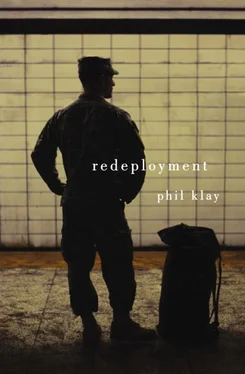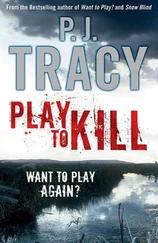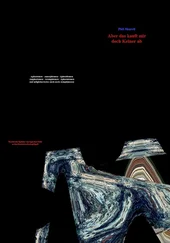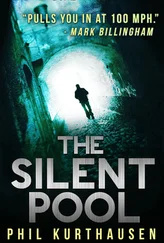But then the battle was called off and 3/4 wound up sitting in houses turned into defensive positions, sniping insurgents. Every fourth house had a sniper team. In the early part of the siege, they’d kill a dozen every day.
I tried to give Zara the feel of the city—not just the dust and the heat and the terror, but also the excitement. Everyone knew the ax was going to fall, it was only a question of when and how many would die.
“Each night,” I said, “the mosques would blast the same messages over the adhan speakers. ‘America is bringing in the Jews of Israel to steal Iraq’s wealth and oil. Aid the holy warriors. Do not fear death. Protect Islam.’”
As PsyOps, I told her, part of our job was to counter those messages. Or at least to fuck with the insurgents and make them scared. Explaining that Islam was a religion of peace wasn’t likely to work, but explaining that we would definitely kill you if you fucked with us might convince a few folks to chill out.
I told her how we used to go out in a Humvee strapped with speakers so we could spew our own propaganda. We’d dispense threats, promises, and a phone number for locals to call and report insurgent activity. We always got shot at. I didn’t tell her what that felt like, hiding in a vehicle with nothing but your voice while you’re taking fire, helpless and angry, depending on the grunts for safety. I just told her that I hated those missions.
The morning I saw someone die, we’d wanted to go out on the speakers again, so we staged behind a building held by 3/4. When we got there we realized the speakers weren’t working. My sergeant, Sergeant Hernandez, fiddled with them as best he could.
When the shots rang out, the heavy burst of a Marine machine-gun section’s 240G, I was in the building, standing in a doorway. The sound turned my head around, and through the corridor I could see the Marines who’d fired. They were stretched across the room in front of me, hiding in shadows toward the back and covering their sectors of fire through the broken windows to the front. They seemed so calm. Whoever got killed probably never even knew the Marines were there. I never heard any incoming AK fire.
“Gunfire was a part of daily life,” I started—but that sounded too hard-guy. I wanted to be honest, so I said, “The truth is, it goosed me, hearing it that close and not being able to see anything, just the Marines.”
I remember hearing a voice from a doorway on the other side of the room say, “Good to go,” and then the response from a thin black Marine with corporal chevrons and a big enough wad of dip in his mouth to make him look deformed.
“Yeah,” he said, “he’s gonna fade for sure.”
A little square-bodied Marine was the one actually manning the machine gun, and he kept saying, “I got him, I got him,” like he couldn’t believe it was true.
The thin black Marine spat and said, “Tell Gomez our section’s a hundred percent now.” That meant every man in his section had killed someone. Which meant the little square-bodied Marine had just done it for the first time.
“And Marines think that’s a good thing,” Zara said.
“Of course,” I said, though I realized I was simplifying. The corporal hadn’t acted like it was a big deal, and it even seemed he found it distasteful, but there was also a lanky Marine in the far corner of the room who’d been nodding, giving the little Marine these small, approving grins.
I looked up from the porch. The daylight had turned soft. We were in that final hour of sun where everyone looks like the best version of themselves.
“And then that little Marine saw me,” I said, “in my Army cammies. And he called out, ‘Hey-o! PsyOps!’ The kid was high off adrenaline. You could tell. His face was flushed. He was calling me out. And I didn’t belong there, looking in on these Marines and their, I don’t know… private moment.”
“Private moment?” Zara said, curious.
“It was their last man finally doing it,” I said.
“Finally doing it,” she said, imitating my voice. “What? You mean he was a murder virgin?”
“Even you don’t think it’s murder,” I said. “You’re smarter than that.”
She sighed and made no argument, so I told her how the little square-bodied Marine’s eyes were wide, his face somewhere between terror and excitement, and he motioned to the scope as if to say, “Look into it.” Somewhere between an offer and a plea.
The squad had been using thermal scopes because the heat signatures made it easier to tell the thin shadows of dogs from the bright white heat of humans. I told Zara how I walked into the room, where I didn’t belong. And I told her how the corporal was staring at me, like he didn’t want me there, and how I ignored him and looked out through the broken windows. The early morning was black. One or two shades of purple stretched across the landscape, but otherwise Fallujah was a dark, undifferentiated mass.
I knelt next to the little Marine, and I looked through the optic, and then the boxy skyline of Fallujah lay out before me in heat gradations of gray and black. Some buildings had a water cistern or fuel tank on the top, and I could tell how much fluid was in the cistern because the cooling line of the water across the metal was written in a light line of gray. A few days earlier, Marines clearing houses had hit a hard point at a building with a fuel cistern, just like that. They shot holes in it, waited until the fuel trickled down all through the house, and set it on fire with the muj inside. I wondered what that would have looked like, through that scope. A lot of white, I guess.
Closer in, immediately in front of me, was an open stretch of road and field and a bright jumble of limbs lying twenty feet out from the nearest building. A black strip alongside must have been the rifle, and I could see the poor bastard clearly hadn’t gotten off a shot. A burst would have heated up the barrel, but all I saw was cold black next to the white heat of the body.
“Why’d you look?” Zara asked.
“Who wouldn’t look?” I said.
“You wanted to see.” Her voice was hard, accusing. “Why’d you look?”
“Why are you here, listening to this story?”
“You asked me to come here,” she said. “You wanted me to hear.”
It was difficult to explain to her how I’d both wanted and not wanted to see, and how the little Marine so clearly didn’t. There was a mix of voyeurism and kindness in me stepping down and looking through the scope. And once I was on the scope, the thin black corporal told me to watch for the heat signature dying, the hot spot fading to the ambient temperature. He told me, “That’s when we’ll officially call in the kill.”
A few kids on skateboards came rolling down the street in front of Zara and me. They looked young. High school, probably. Townies, definitely. You forget not everybody in Amherst is in college. I had no idea where the kids could be going, and we waited until they rolled past and the sound of them disappeared. Then I continued.
“It happens slowly,” I said. “I’d look up for a second and then back, to try to catch a change. The corporal kept looking at the doorways, as if he were worried some senior Marine would see me there and chew us all out. The little Marine kept saying, ‘He’s dead. He’ll fade for sure,’ but I couldn’t tell, so I held my fingers out in front of the optic. They made this searing hot spot, glowing white against the grays of the background. There’s no color in the scope, but it’s not like a black-and-white movie. The scope tracks heat, not light, so everything, the shadings, the contrasts, they’re off in this weird way. There are no shadows. It’s all clearly outlined, but wrong, and I was waving these bright white fingers across the scope, my fingers—but looking so strange and disconnected. I was waving them in front of the body and trying to compare.”
Читать дальше












